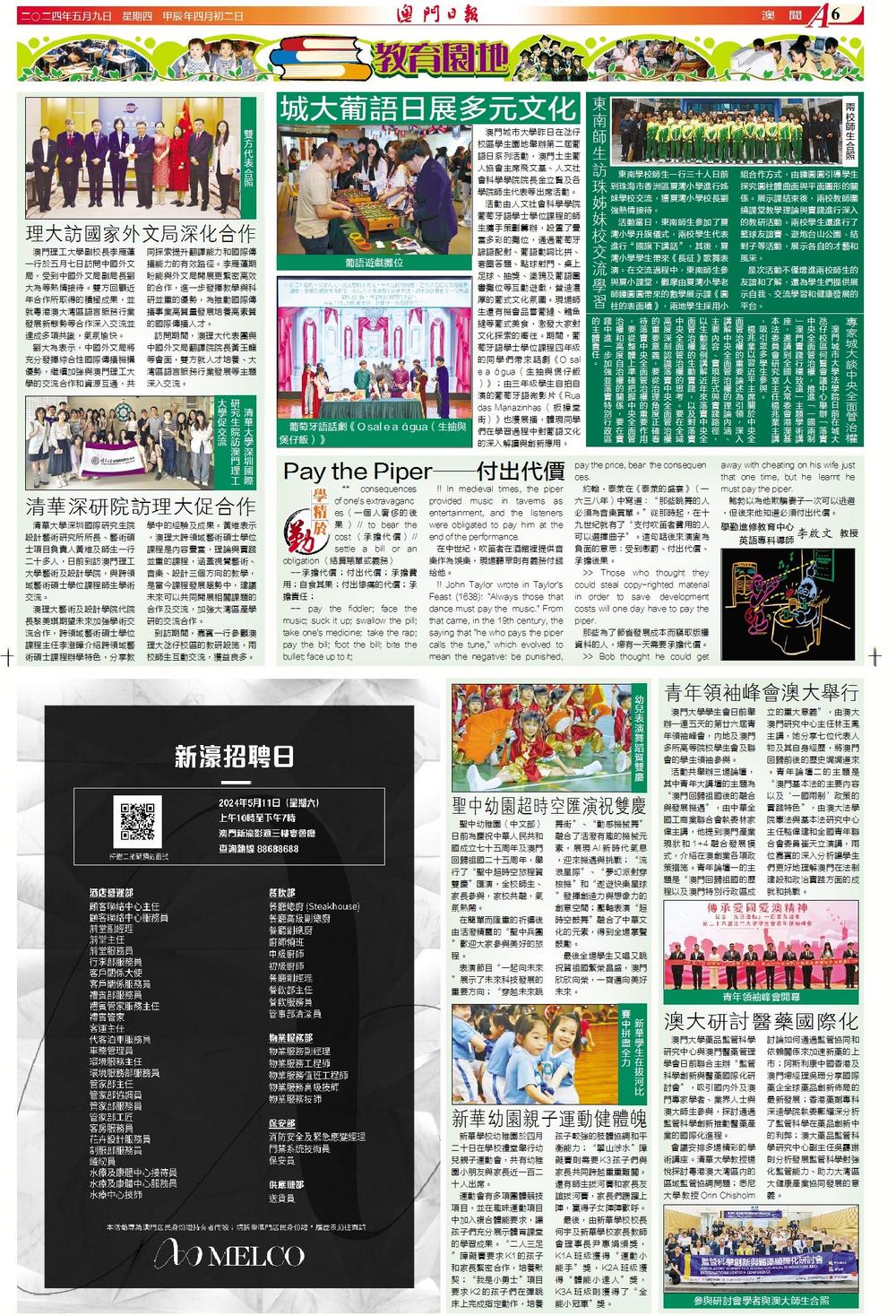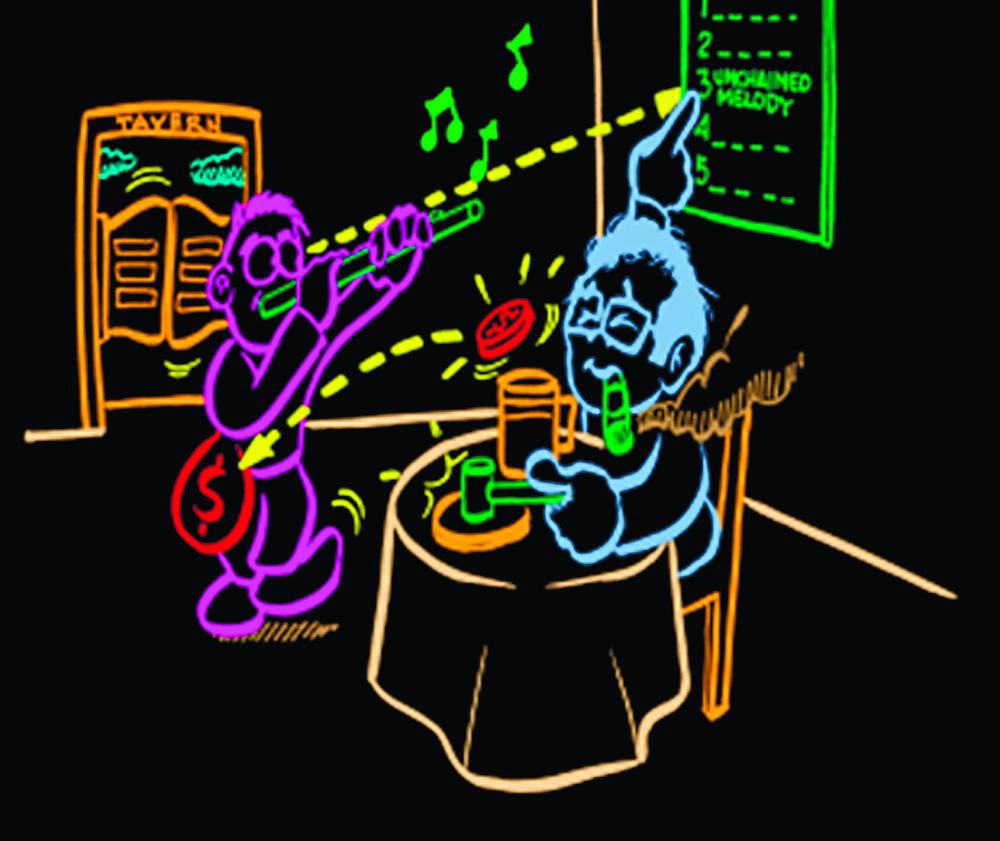Pay the Piper——付出代價
** consequences of one's extravagances〈一個人奢侈的後果〉 // to bear the cost 〈承擔代價〉 // settle a bill or an obligation 〈結算賬單或義務〉
~~承擔代價;付出代價;承擔費用;自食其果;付出慘痛的代價;承擔責任;
~~ pay the fiddler; face the music; suck it up; swallow the pill; take one's medicine; take the rap; pay the bill; foot the bill; bite the bullet; face up to it;
!! In medieval times, the piper provided music in taverns as entertainment, and the listeners were obligated to pay him at the end of the performance.
在中世紀,吹笛者在酒館裡提供音樂作為娛樂,現場聽眾則有義務付錢給他。
!! John Taylor wrote in Taylor's Feast (1638): "Always those that dance must pay the music." From that came, in the 19th century, the saying that "he who pays the piper calls the tune," which evolved to mean the negative: be punished, pay the price, bear the consequences.
約翰 · 泰萊在《泰萊的盛宴》(一六三八年)中寫道:“那些跳舞的人必須為音樂買單。”從那時起,在十九世紀就有了“支付吹笛者費用的人可以選擇曲子”。這句話後來演變為負面的意思:受到懲罰、付出代價、承擔後果。
>> Those who thought they could steal copy-righted material in order to save development costs will one day have to pay the piper.
那些為了節省發展成本而竊取版權資料的人,總有一天需要承擔代價。
>> Bob thought he could get away with cheating on his wife just that one time, but he learnt he must pay the piper.
鮑勃以為他欺騙妻子一次可以逃避,但後來他知道必須付出代價。
學勤進修教育中心
英語專科導師
李啟文 教授





